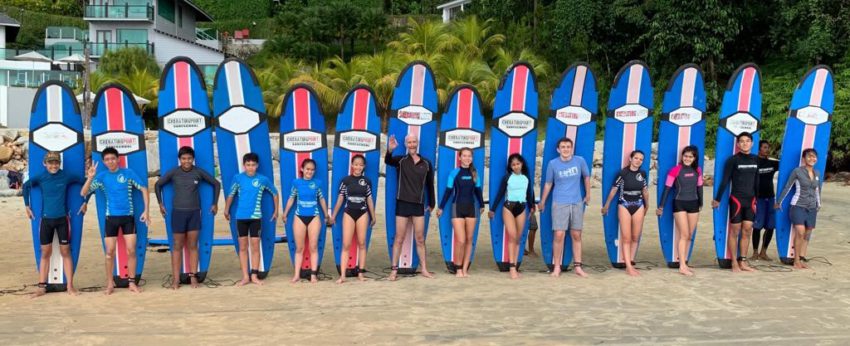A SPECIAL ISSUE ON THE NEW EPI FOR 3e PUPILS
“ECOTOURISM: LET’S PROTECT OUR ENVIRONMENT”
Have you heard of the “EPI”?
If you have children in lower secondary school, then you surely do! If not, EPI is the acronym for Enseignements Pratiques Interdisciplinaires (Cross-subject Practical Teachings) taught in the 5e, 4e and 3e classes. This year at LFKL, the 3e have decided to work on ecotourism as Malaysia -both its peninsular area and the island of Borneo- is renowned for its remarkable aquatic as well as terrestrial natural heritage. The protection of the endemic species and the coastlines, particularly the mangroves, is a key stake here!
What are the conditions of this eco-civic project?
From January 16th to 18th, 2019, the 55 3e pupils went to Cherating. Their goals were:
– Raising their awareness regarding respecting nature;
– Making them understand the importance of protecting essential ecosystems such as mangroves;
– Discussing with them on the positive and negative effects of tourism in order to draw the context and problematic of the EPI.
What were the highlights of this trip?
– A surfing session, as it is a sport activity which helps raise their awareness on the protection of oceans and the observance of safety rules;
– The discovery of endemic species of the mangrove: the pupils observed snakes, crabs, fireflies, etc. They replanted mangrove trees and cleaned the mangrove of plastic waste;
– A meeting with members of the Trash Hero association, who explained the stakes and showed how plastic could be recycled into bricks to make houses;
– The making of batik to bring out the beauty of Malaysia’s natural heritage.
What will this eco-civic trip be followed by?
The pupils will choose a more restricted topic within this theme and work in groups on their project, namely implementing an investigation approach including researching information and making a concrete production of their choosing. Part of the work will be done at home and part in class in various subjects.
Another key moment will be dedicated to the cleaning of the school surroundings.
Finally, the very end of the year will see this project being finalised through, on one hand, the making of a digital slide show and, on the other hand, the preparation for the speaking. Indeed, the pupils will present their project as part of the Brevet speaking exam (accounting for 100 points out of 800), which is no small matter.
What conclusion?
On a personal point of view, sharing all these activities with my pupils and colleagues is truly motivating. Besides, my colleagues and I are already noticing in class the good work dynamics resulting from this project. And, who knows, maybe this will give some of you an opportunity to discuss sustainable tourism further within the family!
Agnès Fouillet, Life & Earth science teacher.



